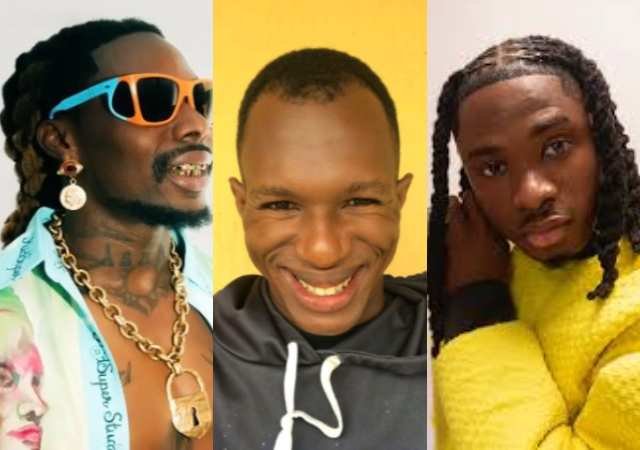Nigerian music fans found themselves embroiled in a heated debate this week over the relative merits of two popular artists: Asake and Lil Kesh. The controversy erupted after a viral video comparing their music videos circulated on social media platforms, igniting discussions about artistic primes, musical eras, and the ever-evolving landscape of Nigerian music.
“I wanted to showcase the evolution of Nigerian music videos,” @NaijaVideoCompare told our reporter in an exclusive interview. “Both Asake and Lil Kesh have made significant contributions to the industry, and I thought it would be interesting to see their work juxtaposed.”
The comparison quickly caught fire, with fans passionately defending their favorite artists. The comment section of the original post became a battleground of opinions, with supporters on both sides presenting compelling arguments.
One Twitter user, @LilKeshForever, wrote: “No one can touch prime Lil Kesh. ‘Shoki’ and ‘Efejoku’ were anthems that defined an era. Asake is good, but he’s standing on the shoulders of giants.”
On the other hand, @AsakeStan21 countered: “Asake’s visuals are on another level. ‘Sungba Remix’ and ‘Organise’ are cinematic masterpieces. He’s taking Nigerian music global!
Amidst the fervor, social media commentator Daniel Regha offered a more measured take on the situation. In a tweet that has since been retweeted over 10,000 times, Regha wrote:
Prime Lil Kesh was a sensation which no-one can deny, but comparing him to Asake is unnecessary cos Asake might not have reached his prime yet; And even if he has, the comparison is still kinda pointless since both thrived in different times.
Regha’s comments sparked a new wave of discussion, with many praising his balanced perspective. @iamAbode replied: “You will enjoy Daniel’s tweet when his brain boots properly. This is one of the few times you are making sense.”
Watch on TikTok
In a follow-up tweet, Regha highlighted the unique challenges faced by contemporary artists like Asake:
“It’s not easy to maintain relevance in this streaming era & Asake has managed to do just that, which simply proves that he could’ve easily thrived in the mid or late 2010s.”
This observation resonated with industry insiders. Music producer OluwaseunBeatz, speaking to our reporter, agreed: “The game has changed dramatically. Artists today need to navigate streaming algorithms, social media trends, and a much more crowded field. Asake’s success in this environment is truly remarkable.”
As the debate raged on, some fans pointed out the fundamental differences between the two artists. @Skuullls tweeted: “Asake is better than Lil Kesh. Bro Asake isn’t a rapper.”
This comment highlights the challenge of comparing artists from different genres and eras. Music critic Adebola Showemimo explains: “Lil Kesh emerged during a time when rap and dance-oriented tracks were dominant. Asake, on the other hand, is part of the Afrobeats wave that’s currently taking the world by storm. They’re both products of their time, and both excellent in their own right.”
One recurring theme in the discussion was the concept of an artist’s “prime.” @aIigoni suggested: “I think Asake has surpassed his prime. He can’t do better than Work of Art or MMWTV.”
This comment sparked a sub-debate about whether it’s possible to determine an artist’s prime while their career is still active. Music historian Dr. Funmi Adewole argues: “The concept of ‘prime’ is often only clear in retrospect. Asake’s career is still evolving, and it’s premature to say he’s peaked.”
As the debate continues to simmer on social media, it’s clear that both Asake and Lil Kesh have left indelible marks on Nigerian music. Their impact extends beyond mere chart success, influencing fashion, dance, and popular culture.
@leeymackk summed up the sentiment of many: “The two are quite similar, but the key difference is that Asake hails from a time when everything about music was much simpler.”
This observation perhaps gets to the heart of the matter. While comparisons are natural, they often fail to capture the nuances of different eras and the unique challenges faced by artists in each period.
The Asake vs Lil Kesh debate has done more than just entertain social media users. It has sparked important conversations about artistic evolution, the impact of technology on music, and the ever-changing nature of success in the Nigerian music industry. As both artists continue to shape the soundscape of Nigerian music, one thing is certain: the passion of their fans shows no signs of waning.




